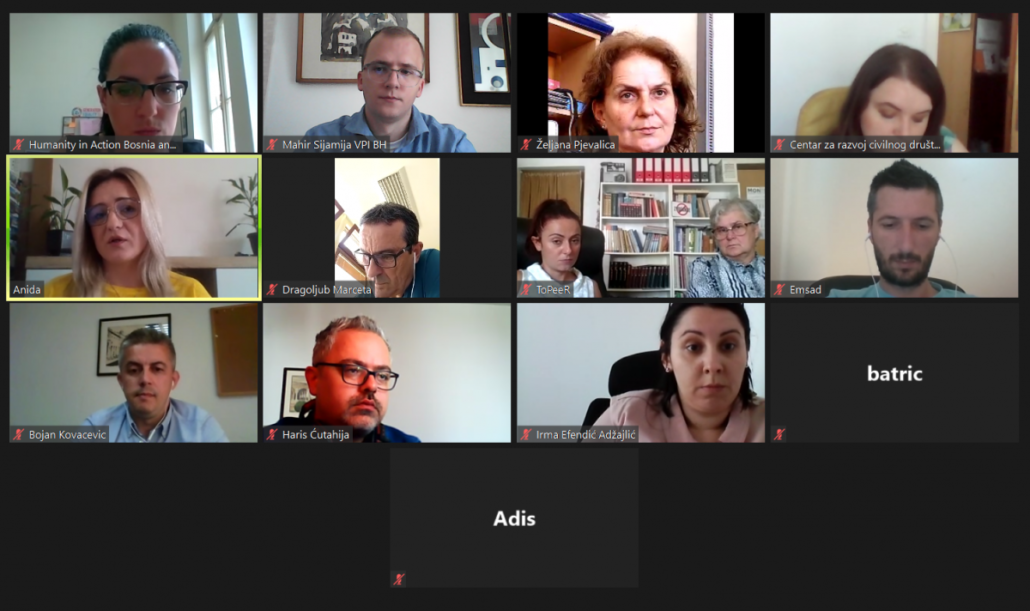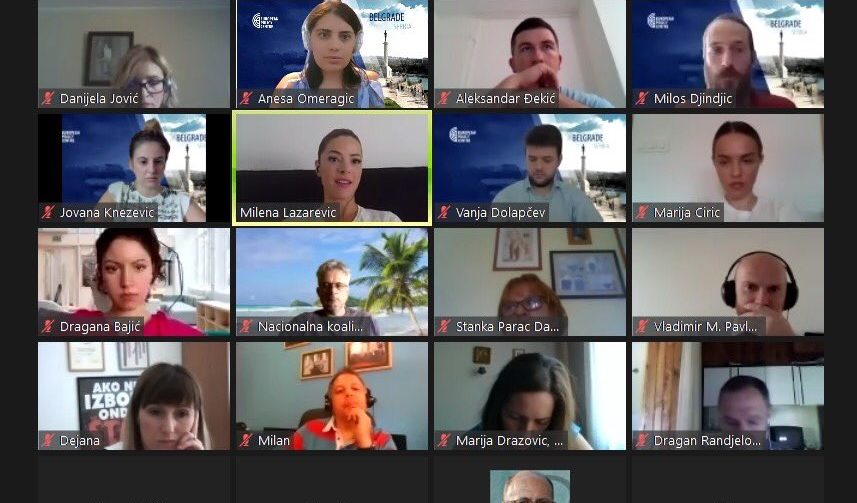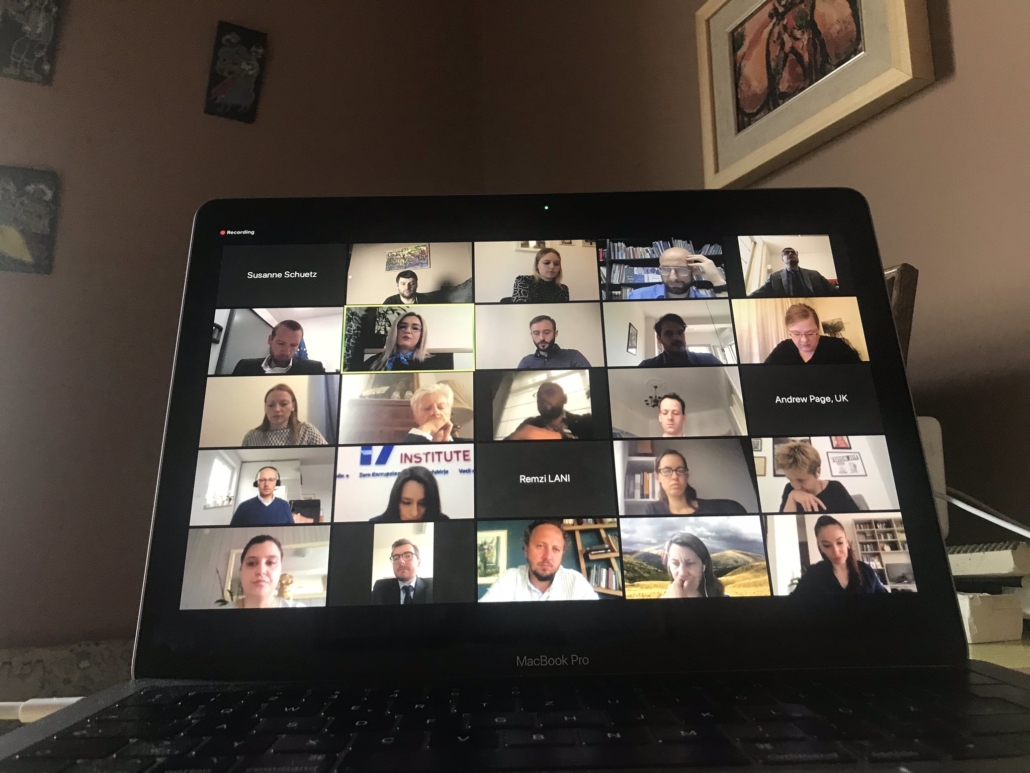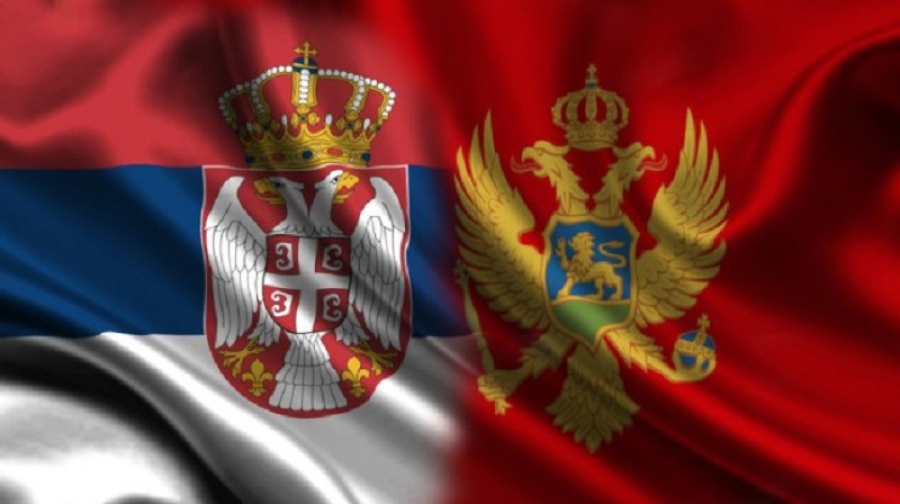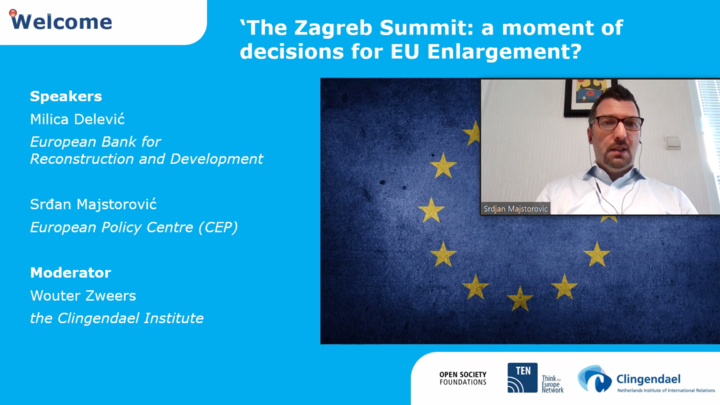This article is originally published in a Danish newspaper “Magazinet Europa”
It’s telling that the most important milestones of the EU’s enlargement policy are closely tied to Denmark. In 1993, the “Copenhagen criteria”, which set the conditions for EU aspirants, were defined by the EU Council, then headed by Danish prime minister Poul Nyrup Rasmussen (S). In 2002, when Denmark was heading the EU Council again under prime minister Anders Fogh Rasmussen (V), a historic decision was made to expand the Union to 10 new members. Fast forward to autumn 2019, and, in the context of enlargement to the Western Balkans, Denmark was one of the countries that opposed opening accession talks with Albania and North Macedonia. Denmark, once one of the strongest advocates of EU expansion, now finds itself rather sceptical on the Western Balkans’ enlargement dossier.
Our delegation from six Western Balkan think
tanks, each of us representing the civil society in each country, recently
visited Denmark and met with several political and non-governmental
organizations. As the trusted voice of the civil society from the region, we
fully understand the concerns of Danish citizens and politicians about the
Western Balkans joining the EU. Our countries are still far from fulfilling the
EU membership criteria. But our political leadership needs a strong prospect of
EU membership in order to undertake the necessary political reforms and to
establish of functioning institutions and rule of law. At the same time, we fear
that ignoring and relegating the Western Balkans accession process due to more
pressing issues at home is doing harm both to the EU and to the Balkan region
itself.
It should not take a lot of political courage to explain
to citizens that the opening of accession talks with one candidate country does
necessarily mean that the country will eventually join the EU unprepared. Look
at the so-called “front-runners” from the region – Montenegro and Serbia: they have
been negotiating EU membership for years but have been stuck in the process due
to their inabilities to demonstrate a strong reform record on democratic performance
and rule of law. The opening of accession talks should be seen – as it really
is – only a small step in a long and demanding accession process. In fact, it is
the EU and its member states who set the rules and assess the results. At the
same time, moving forward in the process bears immense symbolic importance for
a candidate country, to the extent that its political stability can be
threatened, as is currently the case in North Macedonia. To overcome the yearlong
name dispute with Greece, the country even changed its name to finally embark
on its accession talks with the EU. But despite doing its proverbial homework, North
Macedonia has been blocked in the process – this time not by Greece but Denmark.
That undermines our trust in the promises made by the EU, and makes us wonder
if we have been given a chance
at all?
These are some examples which show that the current method
for accession negotiations is ineffective. On the one hand, the region’s political
leaders have few domestic incentives to reform, knowing that the benefits of the
EU integration process stretch far beyond their political mandates. On the other
hand, the EU is unable to deliver on its promises towards the region. Therefore,
the EU Commission has put forward a proposed revision of the accession process,
which imposes stricter requirements for democratic, judicial and economic
reforms on candidate countries. Denmark should see this as an opportunity not
to be missed for making EU enlargement to the Western Balkans a success story,
and to avoid possible democratic backsliding post-accession, which we have seen
in Hungary and Poland. Our region should suffer from collateral damage of that
or any other problem we did not cause.
As citizens of the region determined to make
a better future for the next generations, we pledge for a strict and
merit-based accession process that would result in a transformation of our
countries and societies to respect European values. In our view, for this to
happen, three crucial ingredients are needed.
The first is the political courage of the EU
member states to acknowledge all the benefits of having the rest of the Balkan region
(with a total population smaller than Romania’s) as part of the bloc, as well
as the risks associated with continued neglect. Following Brexit, the EU’s
expansion to this region would offer new export opportunities for Danish companies.
Moreover, the counties of the region are not only geographically, but also historically
and culturally part of Europe: for instance, Bosnians are among the best
integrated communities in Denmark. Moreover, three countries of the region are
NATO members. And both the EU and the Western Balkans are concerned with
climate change and intercontinental migration. However, the EU’s fading
engagement in the region is already resulting in the stronger presence of other
global powers such as China and Russia, a phenomenon expected to further intensify
should the EU remain passive.
Secondly, the EU’s stronger political
engagement needs to be accompanied by greater support to civil society in the
region, the real agents of transformation. The EU should empower and reassure
those actors who are interested in strong democratic institutions, freedom of the
media, an independent judiciary, and the eradication of widespread corruption
and organised crime. Functional democracy is a guarantee of political
stability, but in the absence of a credible membership perspective, the
region’s strongmen will find that their only chance of staying in power is by
nurturing a nationalist and conflict escalating rhetoric.
Bosnia and Herzegovina and Kosovo have been stuck for
years in the process of being granted official candidate status due to
statehood issues, which has left their citizens disillusioned about their
European perspective.
Finally, the accession process itself needs
to be rewarding for political elites. For them to engage in potentially
politically costly reforms, they need to receive tangible rewards from the EU upon
delivery. Offering access for the region to some areas of EU policy at
different stages in the process, as is proposed in the EU Commission’s revised
enlargement methodology, would serve as a stabilising factor for political
systems in the entire region.
Now is the time to act. If this opportunity is missed, the Western Balkans risk another lost decade marked with new potential instabilities. If skilled and educated young people do not see a European perspective at home, they will take on existing opportunities to migrate and seek better living conditions in the EU themselves. This leaves our homes more prone to populism and dangerous nationalist conflicts, depriving the Western Balkans societies of their long-term economic potential. Conversely, if we increase the membership dialogue and mutual engagement now, we can go a long way in making the entire European continent a safe and sustainable place for living. It is in Denmark’s security, economic and civic interest to invest itself in this dossier and to reap its benefits.
TEN Network:
* Arbëresha Loxha, Group for Legal and Political Studies (GLPS), Pristina, Kosovo;
* Anida Šabanović, Foreign Policy Initiative (FPI), Sarajevo, Bosnia and Herzegovina;
* Dina Bajramspahić, Institut Alternativa (IA), Podgorica, Montenegro;
* Sena Marić, European Policy Centre (CEP), Belgrade, Serbia.
* Gjergji Vurmo, Program Director, Institute for Democracy and Mediation (IDM), Tirana, Albania;
* Stefan Ristovski, European Policy Institute (EPI) Skopje, North Macedonia;
